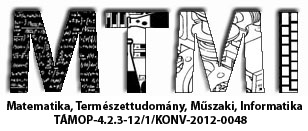Effect of unilateral labyrinthectomy on brevican expression in the vestibular nuclear complex
Abstract data
Disturbances in vestibular functions caused by unilateral labyrinthectomy (UL) are spontaneously restored during the process of vestibular compensation due to the plasticity of central nervous system (CNS). Recent studies have shown that the extracellular matrix (ECM) molecules have either permissive or non-permissive effect on the neural plasticity. In the CNS, ECM molecules are present in condensed forms surrounding the perikarya and dendrites as the perineuronal net (PNN); or they are distributed in the neuropil. In the PNN, the ECM assembly is formed by hyaluronan, chondroitin sulfate proteoglycans or lecticans including aggrecan, brevican, neurocan, versican, and glycoproteins. Data are not available about the contribution of various ECM molecules to the vestibular compensation. In the present work, particular attention has been on the expression of brevican in the superior (SVN), lateral (LVN), medial (MVN) and descending (DVN) vestibular nuclei of the rat.
Upon UL, female adult rats exemplified signs of uncoordinated limb movements and imbalance of head on the affected side. After a period of 1, 3, 7 and 14 days of survival the brainstem was removed and immersed into Sainte-Marie’s fixative. The specimens were embedded in paraffin and transverse sections were made at a thickness of 8 μm. Immunohistochemical reaction for brevican was visualized by diaminobenzidine (DAB) reaction.
In the control animals, we detected brevican positive PNNs in the SVN, LVN and in the magnocellular part of the MVN. On postoperative day one we saw no difference on the affected side. Day three shows the SVN PNN to be fainter than the unoperated side and the LVN shows a stronger PNN on the operated side. At seven days SVN PNN rebuilt on the operated side, DVN is fainter on operated side and LVN on operated side shows slight fainting. At 14 days all were restored.
Our results showed that the UL is accompanied by the modification of brevican staining mostly in the PNNs of vestibular nuclei engaged in the vestibule-ocular reflex. The time course of re-establishment of PNN is parallel to the improvement of postural deficits.
Támogatók: Támogatók: Az NTP-TDK-14-0007 számú, A Debreceni Egyetem ÁOK TDK tevékenység népszerűsítése helyi konferencia keretében, az NTP-TDK-14-0006 számú, A Debreceni Egyetem Népegészségügyi Karán folyó Tudományos Diákköri kutatások támogatása, NTP-HHTDK-15-0011-es A Debreceni Egyetem ÁOK TDK tevékenység népszerűsítése 2016. évi helyi konferencia keretében, valamint a NTP-HHTDK-15-0057-es számú, A Debreceni Egyetem Népegészségügyi Karán folyó Tudományos Diákköri kutatások támogatása című pályázatokhoz kapcsolódóan az Emberi Erőforrás Támogatáskezelő, az Emberi Erőforrások Minisztériuma, az Oktatáskutató és Fejlesztő Intézet és a Nemzeti Tehetség Program



